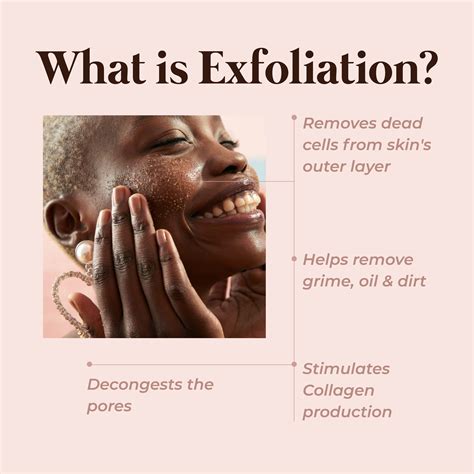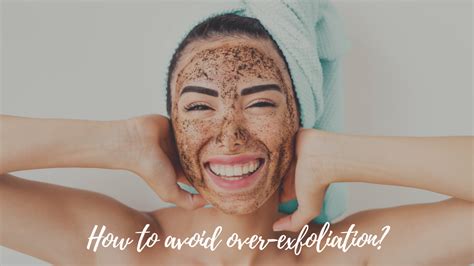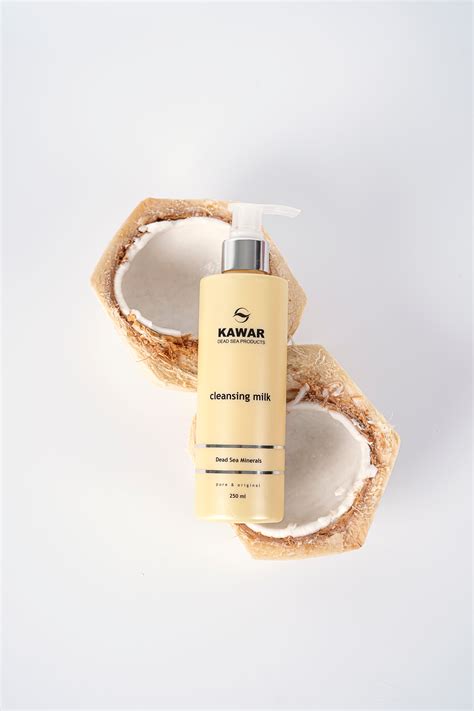Imagine a world where your skin feels velvety smooth to the touch, where dry patches and flakiness are a distant memory. For those seeking the secret to achieving supple, radiant skin, exfoliation is the answer. Whether you yearn for a natural glow or struggle with pesky dryness, understanding the art of exfoliation can unlock the pathway to your skin's true potential.
The key to exfoliating dry skin lies in the gentle removal of dead cells that accumulate on the surface. By delicately sloughing away this buildup, you allow your skin to breathe, revealing a renewed and vibrant complexion. But beware – the process of exfoliation requires finesse, as one wrong move can lead to irritation and redness.
Why is exfoliation so crucial for dry skin, you ask? Well, dry skin tends to lack moisture, often leading to a dull and lackluster appearance. The buildup of dead skin cells acts as a barrier, preventing the absorption of essential nutrients and moisture. By exfoliating, you create a clean canvas, allowing your skin to better absorb the hydrating products that will nourish and replenish it.
So, how can you safely and effectively exfoliate your dry skin? Firstly, it's important to choose the right exfoliator for your skin type. Look for gentle products that contain natural ingredients such as oatmeal or sugar, as these are less likely to cause irritation. Additionally, it's crucial to exfoliate no more than twice a week, as excessive scrubbing can lead to inflammation and sensitivity.
The Significance of Exfoliation

Regular exfoliation plays a pivotal role in maintaining healthy and rejuvenated skin. This process involves the removal of dead skin cells from the surface of the skin, revealing a smoother and more radiant complexion. By eliminating the buildup of dull, dry, and flaky skin, exfoliation promotes cellular turnover and stimulates collagen production, resulting in improved skin texture and tone.
Exfoliation is crucial for enhancing the skin's natural renewal process, as it facilitates the shedding of old skin cells and promotes the growth of new ones. Not only does this lead to a brighter and fresher appearance, but it also allows for better absorption of skincare products, such as moisturizers and serums. Furthermore, exfoliation can help unclog pores and prevent the formation of acne, blackheads, and whiteheads.
There are various exfoliation methods available, ranging from physical scrubs to chemical peels. Physical exfoliants typically include ingredients like sugar, salt, or particles with gentle abrasiveness. These substances work by physically sloughing away dead skin cells when massaged onto the skin. On the other hand, chemical exfoliants contain alpha-hydroxy acids (AHAs) or beta-hydroxy acids (BHAs) that dissolve dead skin cells and unclog pores at a deeper level.
While exfoliation offers numerous benefits, it is important to remember that moderation is key. Over-exfoliating or using harsh exfoliants can lead to irritation, redness, and sensitivity. It is essential to be mindful of individual skin types and select exfoliation products and techniques accordingly. Additionally, it is advisable to follow up exfoliation with adequate moisturization and sun protection to maintain the skin's health and prevent further dryness.
| Benefits of Exfoliation |
|---|
| - Removes dead skin cells |
| - Improves skin texture and tone |
| - Stimulates collagen production |
| - Enhances absorption of skincare products |
| - Unclogs pores |
| - Helps prevent acne and blackheads |
Selecting the Perfect Exfoliating Products
When it comes to achieving a radiant and youthful complexion, selecting the appropriate exfoliating products for your skin type is crucial. Exfoliation is an essential step in any skincare routine as it helps to remove the build-up of dead skin cells, revealing a smoother and healthier complexion. However, with the wide range of exfoliating products available in the market, finding the right one can be quite overwhelming.
Identifying your skin type is the first step in selecting the perfect exfoliating product. Whether you have oily, dry, sensitive, or combination skin, there are specific exfoliants designed to cater to your unique needs. It is important to understand your skin's characteristics, such as its oiliness, sensitivity, and level of hydration, to make an informed decision.
Chemical exfoliants such as alpha-hydroxy acids (AHAs) or beta-hydroxy acids (BHAs) are ideal for individuals with sensitive or dry skin. These exfoliants work gently by dissolving the bonds between dead skin cells, effectively unclogging pores without causing any irritation.
Physical exfoliants, on the other hand, involve the use of abrasive particles or tools to manually remove dead skin cells. This type of exfoliation is better suited for people with normal or oily skin, as they help to slough off the top layer of skin and promote a more luminous complexion.
Consider your skincare goals when selecting an exfoliating product. If you aim to improve skin texture and minimize the appearance of fine lines and wrinkles, opt for exfoliants containing retinol or glycolic acid. These ingredients stimulate collagen production and promote skin renewal.
It is always recommended to patch test any new exfoliating product before incorporating it into your skincare routine. This will help you determine if your skin reacts negatively to the product, avoiding potential irritations or allergies.
In conclusion, choosing the right exfoliating product is essential for achieving a healthy and glowing complexion. Understanding your skin type, considering the appropriate exfoliating method, and aligning your skincare goals are the key factors to bear in mind when making this decision. Remember, a little research and experimentation will lead you on the path to attaining the smooth and radiant skin of your dreams.
Avoid Over-Exfoliating

While the desire for a glowing complexion may drive us to reach for exfoliating products, it is important to avoid over-exfoliating to maintain the health of our skin. Excessive exfoliation can disrupt the natural barrier function of the skin, leading to dryness, irritation, and even inflammation.
Instead of vigorously scrubbing away dead skin cells, it is wise to opt for gentler exfoliation methods that promote skin rejuvenation without causing harm. This means choosing exfoliating products that are specifically formulated for your skin type and using them in moderation.
The key is to listen to your skin's response and adjust your exfoliation routine accordingly.
Additionally, it is important to give your skin enough time to recover between exfoliation sessions. Over-exfoliating too frequently can cause the skin to become excessively dry and sensitive, making it more prone to environmental damage.
Remember, finding the right balance is crucial to achieving and maintaining smooth, healthy skin.
Nurturing Your Skin with Deep Hydration
One essential aspect of maintaining a radiant and healthy complexion is ensuring that your skin remains adequately hydrated. Proper hydration not only replenishes and nourishes the skin, but it also helps to restore its natural moisture balance, leaving you with a revitalized and luminous appearance. In this section, we will explore effective methods and techniques to hydrate your skin deeply, promoting a visibly soft and supple texture.
When it comes to hydrating your skin, it is important to choose products and ingredients that have the ability to penetrate deep into the layers of the skin. Look for moisturizers that contain humectants such as hyaluronic acid or glycerin, which attract and retain moisture in the skin. These ingredients ensure that hydration is locked in, keeping your skin plump and moisturized throughout the day. Additionally, opt for lightweight formulas that are easily absorbed, allowing the active ingredients to penetrate deeply into the skin without leaving a greasy residue.
Apart from relying on topical solutions, adopting a well-rounded approach to hydration is key. Ensure that you drink an adequate amount of water daily to keep your body and skin hydrated from within. Staying hydrated internally helps to maintain the skin's elasticity and suppleness, preventing it from appearing dry or flaky. Moreover, try incorporating foods rich in water content, such as cucumbers, watermelons, and oranges, into your diet for an extra hydrating boost.
Another effective way to deeply hydrate your skin is through regular facial masks or treatments. Look for masks that contain ingredients like aloe vera, honey, or cucumber, known for their moisturizing and soothing properties. These masks can be used once or twice a week to provide intense hydration and rejuvenation to your skin. Additionally, consider investing in facial mists or sprays that contain hydrating ingredients. These can be spritzed on your skin throughout the day to refresh and hydrate, especially in dry environments such as air-conditioned offices.
Lastly, don't forget to exfoliate regularly. By removing dead skin cells, exfoliation helps to enhance the absorption of hydrating products, allowing them to penetrate deeper into the skin. Choose gentle exfoliants, such as those containing fruit enzymes or lactic acid, as harsh scrubbing can irritate and further dry out the skin. Remember to follow up with a nourishing moisturizer to seal in moisture and maximize the benefits of hydration.
In conclusion, hydrating your skin deeply is vital for maintaining a youthful and radiant complexion. By choosing suitable moisturizers, adopting a holistic approach, and incorporating hydrating treatments into your skincare routine, you can achieve and sustain optimal hydration levels, ensuring that your skin feels and looks healthy, smooth, and vibrant.
The Advantages of Gentle Cleansing

Giving your skin the care it deserves starts with understanding the benefits of gentle cleansing. When it comes to maintaining a healthy and radiant complexion, taking the time to cleanse your skin properly can make all the difference. However, harsh cleansers or vigorous scrubbing can often strip the skin of its natural oils and disrupt its delicate balance.
Promotes Hydration: Gentle cleansing helps to preserve the skin's moisture by minimizing the removal of essential oils. This is especially important for individuals with dry or sensitive skin, as it allows them to retain the necessary hydration for a smoother, softer texture.
Enhances Skin's Natural Barrier: By using mild cleansing products, you create an environment that supports the skin's natural protective barrier. This barrier acts as a shield against external irritants and pollutants, reducing the risk of inflammation and potential skin issues.
Prevents Overproduction of Sebum: Gentle cleansing prevents the skin from compensating for excessive oil removal by producing more sebum. By maintaining a balanced oil production, you can help prevent breakouts, clogged pores, and excessive shine while preserving a healthy glow.
Reduces Irritation: Harsh cleansers and aggressive scrubbing can cause irritation, redness, and discomfort for those with sensitive skin. Gentle cleansing helps to minimize these unwanted effects, providing a soothing and calming experience for your skin.
Promotes Ageless Beauty: By utilizing gentle cleansing techniques, you can help delay the signs of aging and maintain a youthful appearance. Proper cleansing ensures that your skin is prepared to receive the benefits of subsequent skincare products, allowing them to penetrate deeper and work more effectively.
In conclusion, embracing the advantages of gentle cleansing sets the foundation for healthier, more radiant skin. By preserving hydration, enhancing the natural barrier, preventing the overproduction of sebum, reducing irritation, and promoting ageless beauty, you can enjoy a smoother, more vibrant complexion.
Effective Moisturization Methods for Dehydrated Skin
When it comes to combatting dryness and maintaining a healthy complexion, incorporating effective moisturization strategies into your skincare routine is crucial. Hydrating your skin with the right methods and products can improve its overall appearance and texture, reducing the visible signs of dryness like flakiness and roughness.
One essential step in moisturizing dry skin is to choose a suitable moisturizer that provides long-lasting hydration. Look for products that contain humectant ingredients such as hyaluronic acid, glycerin, or ceramides. These ingredients attract moisture and help the skin retain it, resulting in increased hydration levels.
In addition to using a moisturizer, incorporating a hydrating serum or facial oil can provide an extra boost of moisture to your skin. Serums and oils are highly concentrated and penetrate deeply into the skin, delivering intense hydration and nourishment. Consider products containing natural oils like argan oil, jojoba oil, or rosehip oil.
Another effective way to moisturize dry skin is to incorporate a hydrating toner into your skincare routine. Toners containing ingredients like aloe vera, witch hazel, or rose water can help soothe and hydrate the skin while balancing its pH levels. Apply the toner after cleansing your face to prepare your skin for better absorption of subsequent products.
Don't forget to keep your skin hydrated from within by drinking plenty of water throughout the day. Staying hydrated internally helps maintain the moisture levels of your skin, leading to a more supple and healthy complexion.
| Moisturizing Method | Key Benefits |
| Using a suitable moisturizer | Long-lasting hydration and improved texture |
| Incorporating a hydrating serum or facial oil | Deep hydration and nourishment for the skin |
| Using a hydrating toner | Enhanced skin hydration and pH balance |
| Drinking plenty of water | Internal hydration for a more supple complexion |
By following these moisturizing strategies, you can effectively combat dry skin and achieve a well-hydrated and radiant complexion.
Professional Assistance for Severe Dehydration

Dealing with a significant lack of moisture in the skin can be a daunting challenge. In cases where dryness becomes severe and ordinary skincare methods no longer provide relief, seeking professional help can be the key to restoring the skin's health and vitality. Professional assistance offers advanced techniques and specialized knowledge to effectively address the underlying causes of severe dryness, providing a comprehensive approach to rejuvenating and hydrating the skin.
Expert Evaluation and Diagnosis
During a professional consultation, skincare experts meticulously analyze the condition of the skin, examining various factors that contribute to severe dryness. By evaluating the skin's moisture level, texture, and overall health, professionals can accurately assess the root causes of the problem. Such an in-depth evaluation enables them to diagnose any underlying skin conditions or deficiencies that may be exacerbating the dryness, ensuring that appropriate treatment methods can be prescribed to address the specific concerns of each individual.
Customized Treatment Plans
One of the advantages of seeking professional assistance for severe dryness is the development of customized treatment plans tailored to the unique needs of each individual. Taking into account factors such as skin type, lifestyle, and underlying conditions, skincare professionals curate a comprehensive plan that combines various therapeutic methods to restore hydration and rejuvenate the skin. These plans may include a combination of medical-grade moisturizers, targeted treatments, and advanced procedures to combat dryness and promote skin health.
Advanced Techniques and Technologies
Professional skincare clinics offer access to cutting-edge technologies and advanced techniques that are not readily available for home use. These state-of-the-art treatments, such as intense hydration therapy, microdermabrasion, and laser resurfacing, can penetrate deeper layers of the skin, effectively replenishing moisture and stimulating collagen production. By incorporating these innovative approaches into treatment plans, professionals can deliver superior results, significantly improving severe dryness and transforming the skin's appearance.
Education and Maintenance
Beyond providing immediate relief for severe dryness, professional assistance focuses on educating individuals about proper skincare practices and ongoing maintenance. Skincare professionals offer valuable insight into the ideal daily routine, including suitable cleansers, moisturizers, and protective measures to prevent future dryness. By equipping individuals with the knowledge and tools to care for their skin effectively, professionals empower them to maintain a hydrated and healthy complexion long after the treatment concludes.
Seeking professional help for severe dryness can be a transformative step towards achieving smoother, healthier skin. By benefiting from expertise, personalized treatment plans, advanced techniques, and ongoing education, individuals can overcome the challenges of severe dryness and regain a hydrated, radiant complexion.
FAQ
Why does my skin becomes dry and peeling?
Dry and peeling skin can occur due to a variety of reasons. These may include harsh weather conditions, excessive sun exposure, frequent hot showers or baths, use of harsh soaps or chemicals, and certain medical conditions such as eczema or psoriasis.
How can I prevent dry and peeling skin?
To prevent dry and peeling skin, it is important to keep your skin moisturized. Use a gentle moisturizer regularly, especially after showering or washing your face. Avoid hot showers or baths, as they can strip the skin of its natural oils. Additionally, protect your skin from harsh weather conditions by wearing appropriate clothing and using sunscreen.
What are some tips for treating dry and peeling skin?
If you are experiencing dry and peeling skin, there are several tips you can follow. Firstly, exfoliate your skin gently to remove any dead skin cells. Then, apply a thick layer of moisturizer to lock in the hydration. You can also try using a humidifier in your home to add moisture to the air. Lastly, make sure to drink plenty of water to keep your skin hydrated from within.
Are there any natural remedies for dry and peeling skin?
Yes, there are several natural remedies that can help with dry and peeling skin. Applying aloe vera gel to the affected areas can provide soothing relief. Coconut oil, shea butter, and olive oil are also effective in moisturizing the skin. Additionally, consuming foods rich in omega-3 fatty acids, such as salmon and walnuts, can help improve skin hydration.
When should I consult a dermatologist for my dry and peeling skin?
If your dry and peeling skin does not improve with home remedies or becomes accompanied by severe itching, pain, or infection, it is advisable to consult a dermatologist. They can provide a proper diagnosis, recommend appropriate treatment options, and rule out any underlying medical conditions that may be causing the skin issues.



